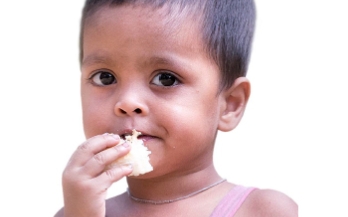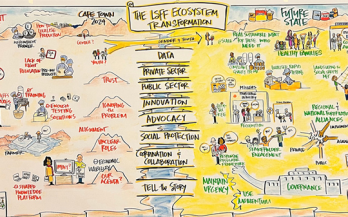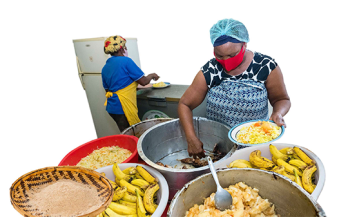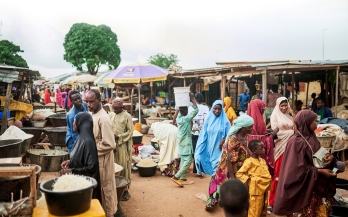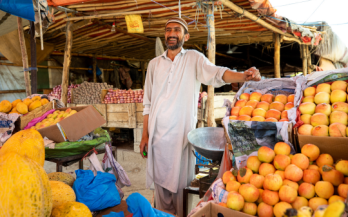KEY MESSAGES Micronutrient deficiencies are widespread globally; recent studies revealed that 1 in 2 children and 2 in 3 women are deficient in at least one micronutrient
Fortifying staple foods with micronutrients is a costeffective and safe intervention that is proven to prevent micronutrient deficiencies and related outcomes
While food fortification programmes are widely implemented around the world, gaps remain. The availability and coverage of high-quality fortified foods are often low, even in countries with fortification mandates, and many countries that could benefit from fortification programmes do not have them.
Countries need support to implement best practices around appropriate programme design, effective monitoring of quality and compliance, and regular review of programme assumptions to ensure they remain safe and impactful over time.
National governments, industry, technical partners, and donors all have diverse roles to play in strengthening food fortification programmes and enhancing impact.
Deficiencies in essential vitamins and minerals (micronutrients) cause devastating damage, particularly for children and women of reproductive age, resulting in increased risks of death, disabilities, more severe and longer-lasting illness, and compromised cognitive and physical development and performance and productivity of people and countries.
A diverse diet is important for health and well-being, contributing to lower malnutrition, including micronutrient deficiency diseases (hidden hunger), as well as underweight, overweight, and associated ill health like low immune system function and non-communicable diseases. It is highlighted under Rwanda’s draft Strategic Plan for Agricultural Transformation (PSTA-5) (2024 to 2030).
The Initiative on Climate Action and Nutrition (I-CAN) presents a new report that analyses the intersection of biodiversity and nutrition, "Biodiversity and Nutrition Synergies: Evaluating National Biodiversity Strategies and Actions Plans for Integration." The report offers a comprehensive analysis of 192 National Biodiversity Strategies and Action Plans (NBSAPs), revealing the current state of nutrition integration in biodiversity policies worldwide.
ToeffectivelytransformMozambique’snationalfoodsystemsinalignmentwiththeUnited Nations Food Systems Summit pathways, it is crucial to have access to current data and analytics. Mozambique’s Food Systems Dashboard, hosted by SETSAN1 (the National Secretariat for Food and Nutrition Security under the Ministry of Agriculture), plays a pivotal role in this transformation.
Food systems have the potential to drive inclusive growth, prosperity, nutrition, and health, or, if poorly managed, they can deepen inequalities and exacerbate poverty, malnutrition, and other poor outcomes. Data plays a crucial role in building food systems that drive positive development outcomes by providing the foundation for informed decision-making, effective policy formulation, targeted interventions, and stakeholder engagement and collaboration.
Indonesia is confronting a pressing public health challenge that extends beyond diet: the impact of non- communicable diseases (NCDs) driven by lifestyle factors, including high sodium intake. This issue
is particularly concerning as many NCDs, such
as hypertension and cardiovascular disease, are preventable yet contribute significantly to the country’s morbidity and mortality rates. For instance, Indonesia’s stroke burden remains substantial, with a Disability- Adjusted Life Years (DALYs) rate of 3,809 per 100,000 people in 2021,1 one of the highest in Southeast Asia, reflecting the urgent need for targeted public health interventions.
Enhancing nutrition for India’s working-age population through workforce nutrition practices can yield numerous benefits, including improved well-being for workers and their families, better productivity, and a stronger economy. Key pillars include access to healthy food, breastfeeding support, nutrition health checks, and nutrition education.
This brief describes a Government of India initiative – the Healthy and Hygienic Food Streets (HHFS) programme that aims to make the country’s street food safer. It shares some of GAIN’s recent contributions to these efforts and provides some implications for national and state governments to consider.
Pakistan’s many small- and medium-sized enterprises (SMEs), including the large number
involved in (nutritious) food supply, are held back by lack of access to adequate finance. Actions could be taken by government, private banks, and other finance providers to help resolve this critical capacity constraint.
